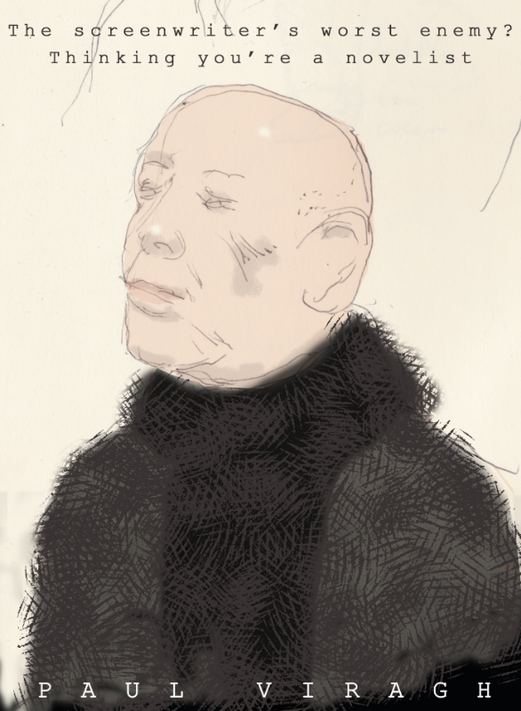|
Attend our next speakeasy
Article and image by Ian Long “Let’s start on page one, shall we? Now, listen …” The mood of the generally affable Paul Viragh, screenwriter of BRAZZA, SEX & DRUGS & ROCK N ROLL, THE FACE OF AN ANGEL and others, darkens a little when he remembers a meeting with a Script Executive who proceeded to read choice bits of dialogue from his screenplay in an affected, sing-song voice, and went on to preface each of his comments with the phrase: “Now, if I’d have written this …” The topic of the evening was script feedback - where to get it, how to take it, how to use it, and how to give it. And this is definitely not how to give it. Early days Paul has come a long way since this incident, and since the evening, long ago, when he and good pal Andy Serkis, both struggling actors trying to make headway in the film business, met up in Soho’s Blue Posts pub to plan their next move – and were so short of money that they had to share a pint. In fact he’s come as far as Fitzrovia’s Wheatsheaf pub, on the other side of Oxford Street, where he was the guest for our first Speakeasy event. We’re hosting these night on the first Tuesday of every month: informal chats with writers, directors, agents and anyone else who might be of special interest to screenwriters. Paul looks back to those early days, when he and a number of his actor friends were trying out other roles to give them more purchase in the industry, with mixed feelings. “We were all looking for some kind of validation,” he says, “and that was a long time coming.” Fathers and sons Paul wrote SEX & DRUGS & ROCK N ROLL on spec – “no one pays you for your first script” – and admits that he was more intrigued by the character of Ian Dury (charismatic and talented, but a tyrannical monster of ego), than by his music. And, for Paul, the real topic of the film was the relationship between Dury and his son. Both Viragh and Serkis (who played Dury brilliantly) knew how it felt to have an absent father, and some scenes were lifted directly from their own lives rather than Dury’s. “You’ve got to write a human being,” Viragh says, and it’s clear that for him achieving emotional truth is more important than the niceties of biography. Looking for funding Many of the studio executives he approached for funding demurred with the tired fob-off that Dury was “an unsympathetic character” (Viragh notes that DOWNFALL, the massively successful, multi award-winning biopic of Adolf Hitler, had just been released when he was having these meetings). Once he’d secured a large tranche of funding from one source, though, previously timid investors decided that unsympathetic characters may, after all, have a certain appeal – proving that the herd instinct is alive and well in the film business. “Why don’t you make something up?” Paul says his daughter often asks him this question, complaining that his scripts tend to be true life stories rather than free flights of fancy. He reminds us that a very high percentage of released films are, in fact, biopics – or are based on books. Telling the life of a real person (particularly one who is well-known) gives you a head start in terms of recognition value. And – to return to the subject of bad advice – writing about real people protects you from script editors and executives whose notes about your protagonist go along the lines of: "What if she was a man?” Want to meet other writers and hear industry advice from pros? Attend this month's speakeasy on Feb. 26th
1 Comment
|
BLOGTHE ONLY PLACE TO TALK ABOUT THE CRAFT OF SCRIPTWRITING.
|
Privacy Policy © Euroscript Limited 2020


 RSS Feed
RSS Feed


